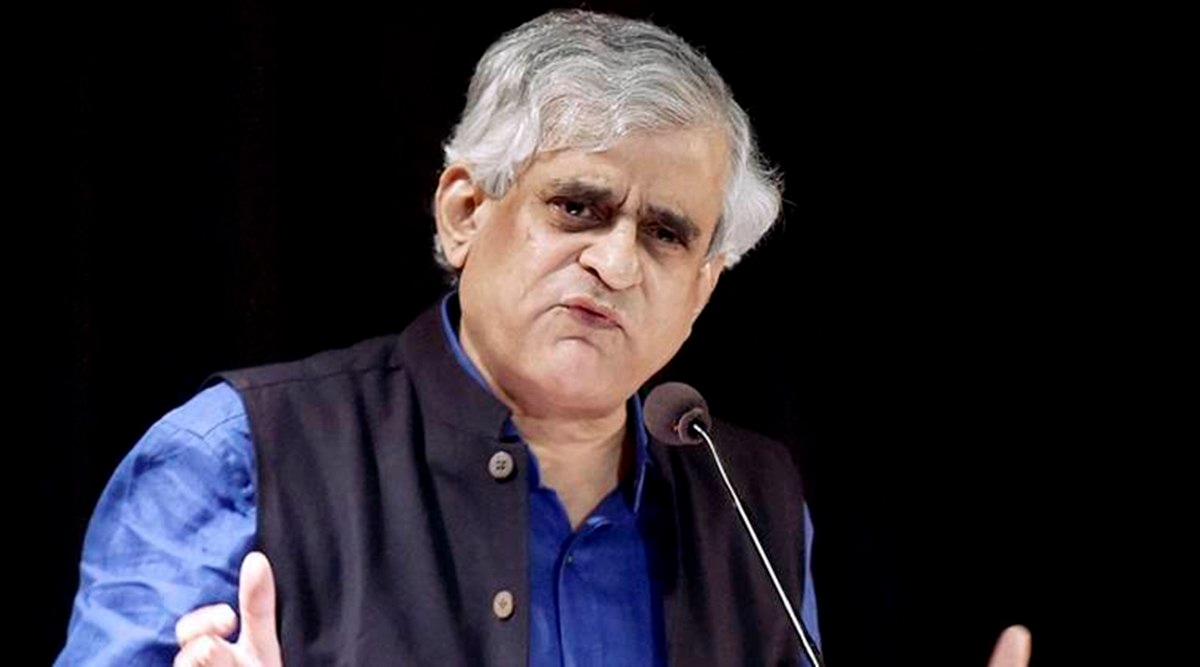 Veteran journalist P Sainath. (File)
Veteran journalist P Sainath. (File) Terming the ongoing farmers’ protest at Delhi borders as a people-driven, peaceful agitation being held “for the first time in decades”, veteran journalist P Sainath advocated for a dedicated parliament session to address the rights and entitlements of disenfranchised groups of farmers. This, he said, is the way out of a broader agrarian crisis and allied issues persisting since decades with shrinking farmers’ income.
Sainath implored people to ask themselves which side of the border they would rather be — one that signifies the elite in the “Delhi sultanate” or the “subaltern” protesting against the three farm laws. MK Gandhi, he said, was faced with this question in 1917 at Champaran, Bihar, which is considered as the first Satyagraha movement that saw farmers revolt against the British colonisers.
“It is very important that we acknowledge them (farmers) on Martyrs’ Day and ask which side of the border Mahatma (Gandhi) will be on… Nearly 200 farmers have died needlessly in a cause larger than agriculture,” Sainath said.
The author of ‘Everybody Loves a Good Drought’ was speaking on ‘Agrarian distress in the age of inequality’ in the context of the new farm laws at an event in Ahmedabad Saturday. The event was organised by an Ahmedabad-based people’s collective ‘Ulgulan’ and Gujarat Khedut Samaj.
He said that it was “after decades that we are seeing Indian peasantry directly confronting corporate power (in)… a historic confrontation”. Stating that he stood for a repeal of the three farm laws which affected not only the farmers “but also every citizen”, Sainath said merely repealing the legislations “won’t solve the agrarian crisis”.
Sainath, who was among the names suggested by a Supreme Court bench to be a part of the court-appointed committee to look at the three farm laws, clarified that he had “declined to be on the committee as it would be a farce to be on such a committee”.
He added, “The Supreme Court is setting up committees when they are supposed to test constitutional validity of laws.” He also questioned the purpose and need of more committees when “there is always the Swaminathan committee (report) to implement”.
Sainath also referred to the ‘Kudumbashree movement’ in Kerala, where the women farmers are a part of the collective do not aim for food security or food sovereignty but rather work on the principle of “food justice”.
“The principle is, say 10 women are working on a farm producing 500 quintals of paddy, you cannot sell a single kilogramme in the market unless (grain) demands of those 10 families are met. Only after it is met can you then sell the rest to the market. Don’t just look at the supply chain, look at the producer. (MS) Swaminathan said: ‘don’t count agriculture growth in terms of (produce) output but look at it in terms of growth in farmers’ income’,” Sainath said.
The veteran journalist, who has worked for decades covering rural population and is the founder of People’s Archive of Rural India (PARI), said some of the key “problems” in the farm laws were a collapse of the public distribution system, vaguely worded clauses in the law that gives immunity on the basis of ‘good faith’ minus defining ‘good faith’, and the lack of focus on increasing farmers’ income.
“There is no meaning of increased MSP (minimum support price) if there is no assurance of procurement. I have learnt that from the drama put on by (late Maharashtra Chief Minister) Vilasrao Deshmukh, wherein he would promise increased MSP but procurement wouldn’t increase. They have been choking the farmers to go to private procurers,” the 2007 Ramon Magsaysay winner said.
Sainath also suggested some steps that must be considered to ensure the welfare of farmers across the country to fight the agrarian crisis. “First, repeal the farm laws. Second, hold a special session of the Parliament — an entire session for farmers to discuss the larger agrarian crisis and related issues. When the corporate world wants it, they get a GST special session… For 15-16 years you couldn’t call farmers to discuss on the National Commission on Farmers’ report, better known as Swaminathan report? A special such session must also be held at every state legislature. I am of the opinion that you cannot engage with the crisis if you ignore issues, like the rights and entitlements of women farmers, Dalit farmers, Adivasis farmers, and without addressing forest rights. In such a session, let the farmers talk. They will tell what is the crisis,” he said.
Sainath also suggested that every taluka, district must start a local committee called ‘Kisaan bachao, desh bachao’, which “will fight for the farmers — to repeal the laws, to demand a special parliamentary session, to demand waiver of debt”. This local committee, he said, should monitor how the MSP is working, mandis and APMCs are working — all from the farmers’ point of view.
He also suggested that products of those corporates, who are directly harming the farmer, should be boycotted. “Whatever is the local demand of your famers, represent the same,” he added.